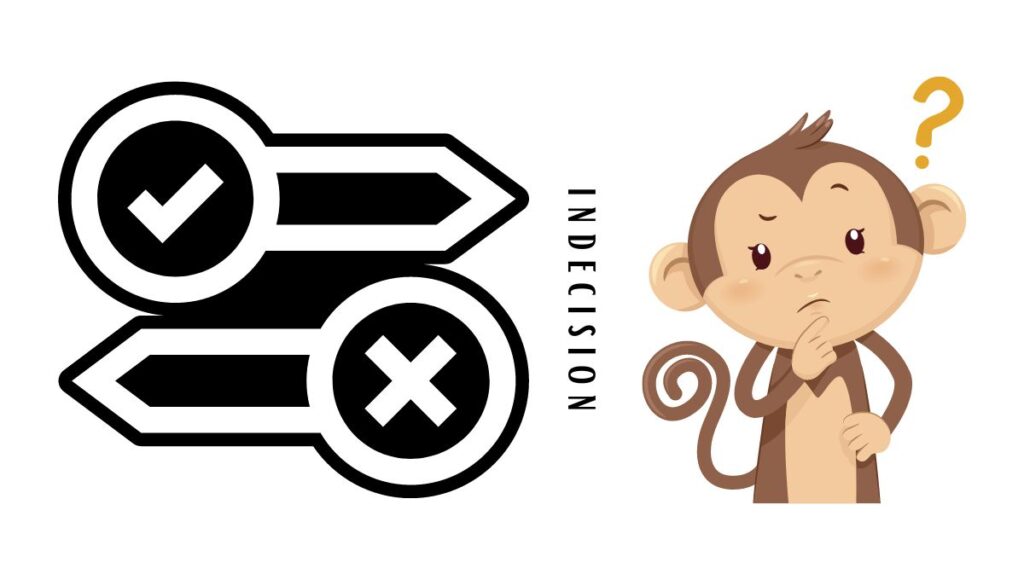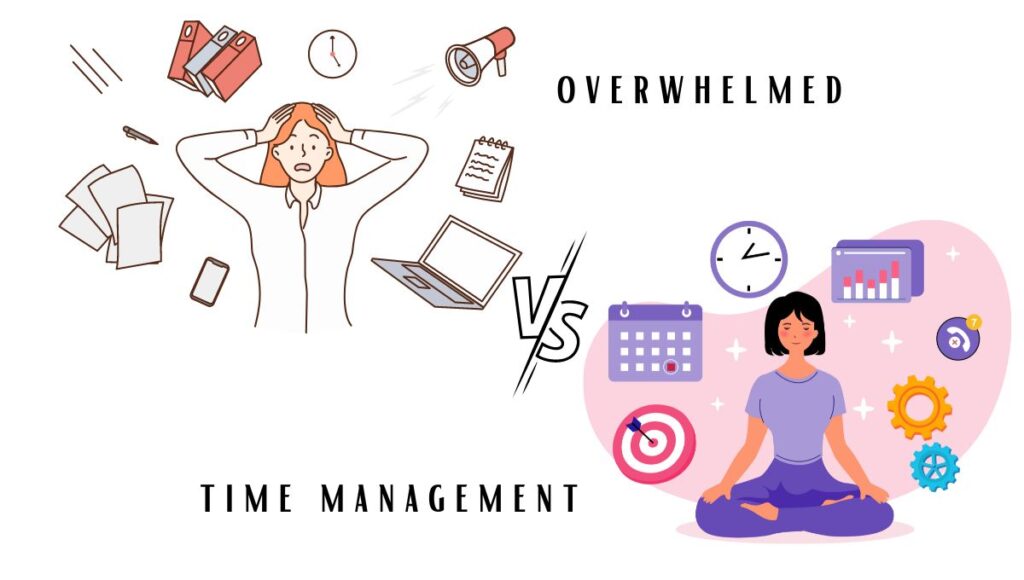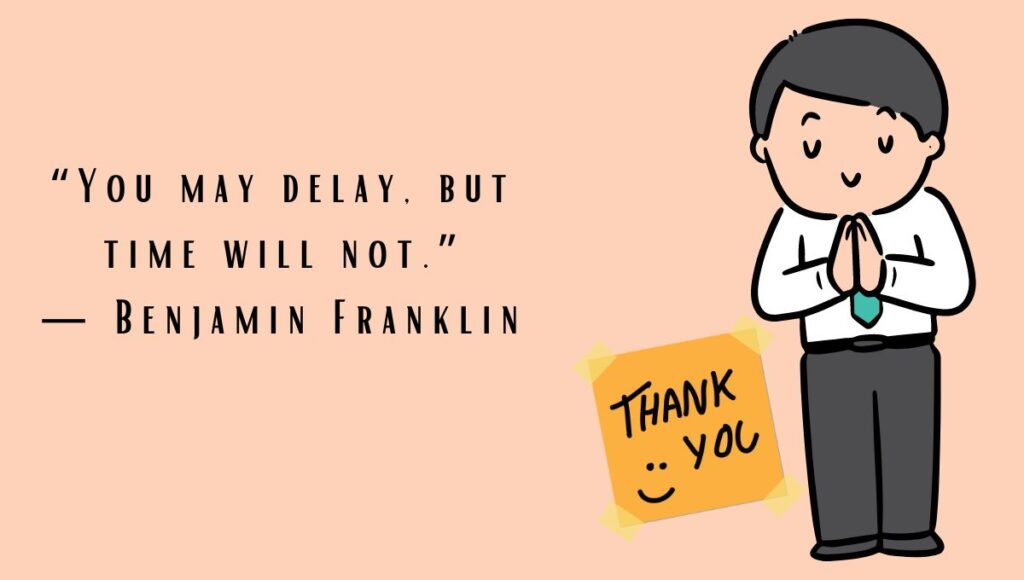Procrastination Trap: 5 Surprising Reasons Why we do it and How to Stop It.

🕵️♂️ Are you trapped in the procrastination maze? 🕳️ Do you find yourself putting off important tasks, even when you know they need to be done? 🤔 If so, you’re not alone. Procrastination affects countless individuals, hindering their progress and causing unnecessary stress.
🔍 In this comprehensive guide, we’ll delve into the intriguing world of procrastination, uncovering the 5 surprising reasons why we fall into its clutches. Along the way, we’ll explore practical strategies to break free and reclaim control of our lives. 🚀
📈 Before we embark on this journey, let’s understand why procrastination matters. It’s not just a matter of delaying tasks; it can have profound effects on our productivity, self-esteem, and overall well-being. 📉
Importance of Addressing Procrastination
Procrastination, in its most innocuous form, may seem like a momentary setback. After all, who hasn’t delayed a task or two? However, habitual procrastination can escalate into a troublesome pattern, impacting various aspects of our lives. From missed opportunities to the buildup of unfinished tasks, its consequences are far-reaching.
⚖️ Procrastination can create a vicious cycle, leading to increased stress and decreased motivation. As tasks accumulate, they become more daunting, amplifying our anxiety and further feeding the urge to procrastinate. This self-perpetuating loop can hinder personal growth and achievement.
🏆 On the other hand, addressing procrastination head-on can lead to a cascade of positive changes. By understanding the root causes and implementing effective solutions, we open the door to enhanced productivity, improved time management, and increased self-confidence. The journey to conquering procrastination begins with awareness and a willingness to take action. 💪
Procrastination Trap: The Mystery Unveiled
Why do we procrastinate when we know it’s detrimental? The answer lies in the intricacies of human psychology. Our minds can be cunning, inventing clever excuses and justifications to postpone essential tasks.
Throughout this blog, we’ll explore five surprising reasons behind our procrastination tendencies, each with its unique twists and challenges. But fear not, for we shall also equip you with powerful tools and insights to break free from this entanglement. Let’s dive in and discover the first intriguing reason:
Fear of Failure and Success

🚫 The fear of failure is an age-old stumbling block that holds us back from taking action. 🛑 It’s that nagging voice that whispers, “What if you’re not good enough?” or “What if it all goes wrong?” As human beings, we have an inherent aversion to failure, often perceiving it as a reflection of our worth.
🌈 Surprisingly, the fear of success can also lead to procrastination. The prospect of achieving our goals and stepping into the spotlight can be equally intimidating. Success comes with its own set of challenges and responsibilities, and this can create resistance within us.
📖 Personal Experience: I vividly recall the time I was working on a passion project—an idea that had been brewing in my mind for years. Yet, as the launch date approached, I found myself hesitating. I realized that the fear of both failure and success was grappling with me, leaving me in a state of inertia.
Solution: Embrace the Journey
Overcoming fear-driven procrastination requires a shift in perspective. Embrace the idea that failure is a stepping stone to success. It provides invaluable lessons and opportunities for growth. Similarly, remind yourself that you are capable of handling success; let it be a reward for your efforts, not a burden.
💬 Remember, even the most accomplished individuals faced setbacks along their journey. Thomas Edison, the inventor of the light bulb, famously said, “I have not failed. I’ve just found Ten thousand ways that won’t work.” Now feel this spirit of resilience, and then you’ll find the courage to take that first step toward your goals.
Perfectionism Paralysis

⚖️ Perfectionism, a double-edged sword that sharpens procrastination. 🗡️ On the one hand, striving for excellence is commendable; on the other, an unyielding pursuit of flawlessness can paralyze our progress.
The Connection Between Perfectionism and Procrastination
🎯 Perfectionists set extraordinarily high standards for themselves. Anything less than perfection is perceived as failure. This mindset can lead to analysis paralysis—overthinking and overanalyzing tasks, rendering us unable to take action.
🎭 Additionally, the fear of not meeting our own impossibly high expectations can cause us to postpone tasks indefinitely. After all, if we don’t start, we can’t fail, right? This cycle of hesitation can become a seemingly impenetrable barrier to our productivity and growth.
📖 Personal Experience: As a content writer, I often found myself laboring over each sentence, seeking the perfect combination of words. This obsession with perfection halted my progress, and what should have been a straightforward task turned into an arduous ordeal.
Solution: Embrace Imperfection
Breaking free from perfectionism-induced procrastination requires a shift in perspective. Embrace the idea that perfection is unattainable and, more importantly, unnecessary. 💫 Instead, focus on delivering your best effort while acknowledging that there will always be room for improvement.
💬 Remember, the pursuit of perfection can stifle creativity and innovation. Allow yourself to make mistakes and learn from them. The iterative process of creation often leads to unexpected breakthroughs and growth.
Strategies to Tackle Perfectionism-Induced Procrastination
🔍 Conquering perfectionism requires a toolkit of practical strategies. Let’s explore some effective ways to overcome this paralyzing trap:
🎯 Adopt a “Good Enough” Mindset: Recognize that perfection is subjective and that aiming for perfection can be counterproductive. Instead, strive for excellence within reason, focusing on delivering high-quality work without getting bogged down by minor imperfections.
📅 Prioritize Tasks and Time Management: Break down your projects into manageable tasks and prioritize them based on their importance and deadlines. This approach prevents feeling overwhelmed and allows you to make steady progress.
🔄 Seek Feedback and Learn to Iterate: Rather than waiting for the perfect moment, seek feedback from peers or mentors. Constructive criticism can provide valuable insights, enabling you to iterate and improve upon your work.
🏆 Embrace the Journey of Progress, Not Perfection 🏆
Decision-Making Dilemma

🔍 Have you ever found yourself stuck in a web of indecision, unsure of which path to take? 🕸️ The decision-making dilemma is a common culprit behind procrastination, leaving us entangled in a state of hesitation.
The Connection Between Indecisiveness and Procrastination
🤔 Indecisiveness arises from the fear of making the wrong choices. We worry about the potential consequences of our decisions, which can immobilize us from taking action.
🎭 Moreover, when faced with numerous options or complex choices, our brains tend to default to the easiest choice: doing nothing. This avoidance tactic provides temporary relief but prolongs the process of reaching a decision.
📖 Personal Experience: I remember a time when I had to choose between two promising job opportunities. Both had their merits and drawbacks, and I found myself constantly weighing the pros and cons. As a result, I delayed making a decision, fearing that I might make the wrong choice.
Solution: Set Decision-Making Deadlines
Breaking free from the decision-making dilemma requires a proactive approach. Set specific deadlines for making choices. This practice instills a sense of urgency, preventing the prolonged agony of indecision.
💬 Remember, not making a decision is, in itself, a decision—to remain in limbo. Embrace the idea that no decision is perfect, and it’s okay to course-correct along the way.
Techniques to Improve Decision-Making and Beat Procrastination
📊 Enhancing decision-making skills can empower us to overcome procrastination. Let’s explore some practical techniques to make well-informed choices:
🎯 Using the “Eisenhower Matrix” for Prioritization: This powerful tool helps categorize tasks into four quadrants based on their urgency and importance. Prioritize tasks accordingly, focusing on what truly matters.
📅 Setting Decision-Making Deadlines: Commit to making decisions within a specific timeframe. Write down the pros and cons of each option and choose the best course of action within the deadline.
👥 Seeking Support and Input from Others: Don’t be afraid to seek advice from friends, family, or colleagues. External perspectives can provide valuable insights and shed light on blind spots.
🏆 Embrace Decisiveness and Emancipate from Procrastination 🏆
Lack of Motivation and Focus

🎯 Motivation and focus are the fuel that propels us forward toward our goals. However, when these vital elements wane, we find ourselves entangled in the web of procrastination.
The Role of Motivation and Focus in Procrastination
🔍 Lack of motivation often stems from feeling disconnected from our goals or lacking a sense of purpose. When we can’t see the significance of a task, it’s challenging to summon the drive needed to tackle it.
🎭 Additionally, distractions and competing priorities can divert our attention away from important tasks, eroding our ability to concentrate and hampering productivity.
📖 Personal Experience: As a writer, I occasionally encountered days when the words refused to flow. I found myself grappling with a lack of motivation, and even the most straightforward tasks seemed insurmountable.
Solution: Finding Purpose and Creating a Vision
Regaining motivation and focus requires reconnecting with our purpose and establishing a clear vision. Here’s how you can reignite your drive:
💫 Finding Purpose: Reflect on the deeper meaning behind your tasks. How do they align with your values and long-term aspirations? Understanding the “why” can infuse tasks with renewed significance.
🌟 Creating a Vision: Visualize your desired outcomes and the benefits they bring. Visualization can create a sense of excitement and help you stay focused on the end goal.
Techniques to Boost Motivation and Concentration
🎯 Enhancing motivation and focus requires deliberate efforts. Let’s explore effective techniques to stay on track and remain engaged:
📚 Utilizing the Power of Habit and Routine: Establishing positive habits and routines can automate tasks and reduce the reliance on fleeting motivation. Consistency breeds progress.
⏳ Incorporating Mindfulness and Meditation: Practicing mindfulness can cultivate focus and enhance your ability to stay present, which is vital for conquering procrastination.
🚀 Setting Achievable Milestones: Break larger tasks into smaller, manageable milestones. Celebrate each achievement, as small victories fuel motivation and drive.
🏆 Embrace Motivation and Focus to Soar Above Procrastination 🏆
Overwhelm and Time Management

🌪️ Overwhelm, the whirlwind that sweeps us away from productivity, leaving us lost in a sea of tasks and responsibilities. The struggle to manage time efficiently can perpetuate the cycle of procrastination.
The Connection Between Overwhelm and Procrastination
🤯 When faced with an avalanche of tasks, it’s easy to feel overwhelmed and uncertain about where to begin. This sense of being buried under a mountain of responsibilities can lead to inaction.
⏰ Moreover, poor time management exacerbates overwhelm. Underestimating the time needed for tasks and failing to prioritize wisely can leave us feeling like time is slipping through our fingers.
📖 Personal Experience: There were instances when my to-do list seemed never-ending, and I felt paralyzed by the sheer volume of tasks. This overwhelm often led to procrastination, as I couldn’t decide where to start.
Solution: Breaking Tasks into Smaller Steps
Managing overwhelm requires breaking tasks into smaller, actionable steps. By taking on one step at a time, we create a sense of progress and regain control.
💬 Remember, the key to overcoming overwhelm is to focus on what’s within your control. Accept that you can’t do everything at once, but you can tackle one step at a time.
Techniques for Overcoming Overwhelm and Managing Time
🌟 Let’s explore practical techniques to combat overwhelm and make the most of your time:
🎯 Breaking Tasks into Smaller Steps: Divide complex tasks into smaller, more manageable chunks. This approach reduces intimidation and allows you to make steady progress.
⏰ Utilizing Time-Blocking and Pomodoro Technique: Time-blocking involves allocating specific time slots for various tasks. The Pomodoro Technique utilizes short, focused bursts of work followed by brief breaks to maintain productivity.
👥 Delegating and Saying No to Unnecessary Commitments: Recognize when it’s necessary to delegate tasks or decline additional responsibilities. It’s okay to say no to avoid spreading yourself too thin.
🏆 Conquer Overwhelm, Master Time Management, and Embrace Productivity 🏆
Conclusion

🎉 Congratulations on embarking on this transformative journey to understand and overcome the procrastination trap! 🚀 We’ve explored five surprising reasons why we fall into its clutches and delved into effective strategies to break free and reclaim control of our lives.
🕵️♂️ Let’s recap the key insights from each part:
1️⃣ Fear of Failure and Success: Develop a growth mindset, set realistic goals based on rationality, and treat failure as a stepping stone to success.
2️⃣ Perfectionism Paralysis: Shift your focus from perfection to excellence, prioritize tasks, and embrace the power of iteration.
3️⃣ Decision-Making Dilemma: Set decision-making deadlines, seek external perspectives, and remember that indecision is a decision in itself.
4️⃣ Lack of Motivation and Focus: Find purpose, visualize your goals, establish positive habits, and practice mindfulness to stay motivated and focused.
5️⃣ Overwhelm and Time Management: Break tasks into smaller steps, use time-blocking techniques, and learn to delegate or say no when necessary.
🏆 Armed with these insights and techniques, you are now equipped to tackle procrastination head-on and lead a more proactive and productive life. 💪
🌈 Remember, it’s natural to face occasional setbacks, but what matters most is your commitment to growth and improvement. Celebrate your progress, no matter how small, and continue moving forward.
🔍 Embrace the journey of progress, not perfection, and recognize that each step, no matter how incremental, brings you closer to your goals.
🌟 As we bid farewell, I leave you with a final reminder: You have the power to break free from the procrastination trap and unlock your true potential. 🗝️ Embrace decisiveness, motivation, and focus as your allies, and procrastination will become a thing of the past.
💫 Embrace the power within you, and let it shine in every aspect of your life. The path to success may be challenging, but it is yours to forge.
🏆 So go forth, conquer procrastination, and create the future you desire. 🌟

FAQs
Is procrastination a sign of laziness?
No, procrastination is not necessarily a sign of laziness. It can be a complex response to various underlying factors, such as fear, perfectionism, overwhelm, or lack of motivation.
How can I overcome fear-driven procrastination?
Overcoming fear-driven procrastination involves cultivating a growth mindset, setting realistic goals, and embracing failure as a learning opportunity.
How can I improve decision-making to combat procrastination?
Improving decision-making involves setting deadlines for choices, seeking external perspectives, and recognizing that indecision is a decision in itself.
How can I boost motivation and focus to overcome procrastination?
Boosting motivation and focus can be achieved through finding purpose, creating a vision, establishing positive habits, and incorporating mindfulness practices.
What are effective time management techniques to tackle overwhelm and procrastination?
Effective time management techniques include breaking tasks into smaller steps, utilizing time-blocking, and learning to delegate or say no to unnecessary commitments.
Can breaking tasks into smaller steps really make a difference?
Yes, breaking tasks into smaller steps can make a significant difference. It makes overwhelming tasks more manageable and provides a sense of progress, increasing motivation.
Is it normal to face setbacks in the journey to conquer procrastination?
Yes, setbacks are a natural part of any self-improvement journey. Embrace setbacks as opportunities for learning and growth, and continue moving forward.
How can I celebrate small victories to stay motivated?
Celebrating small victories involves acknowledging and rewarding yourself for each accomplishment, no matter how minor. This positive reinforcement boosts motivation. But do not be satisfied with that, remember that this is just a reward, not any kind of goal destination.
Can mindfulness really help with focus and productivity?
Yes, mindfulness practices like meditation can improve focus, concentration, and overall productivity by training the mind to stay present and attentive.
Is it okay to seek support and input from others when making decisions?
Absolutely! Seeking support and input from trusted friends, family, or colleagues can provide valuable insights and help you make more informed decisions.
Can saying “no” be beneficial in overcoming overwhelm?
Yes, learning to say “no” to unnecessary commitments can help you prioritize tasks and prevent spreading yourself too thin, reducing overwhelm.
What is the first step to conquering procrastination?
The first step is becoming aware of your procrastination patterns and understanding the reasons behind your behavior. From there, you can implement targeted solutions.
Are there any resources or tools that can help in the fight against procrastination?
Yes, various resources, such as time management apps, habit trackers, and productivity books, can be valuable tools in overcoming procrastination.



